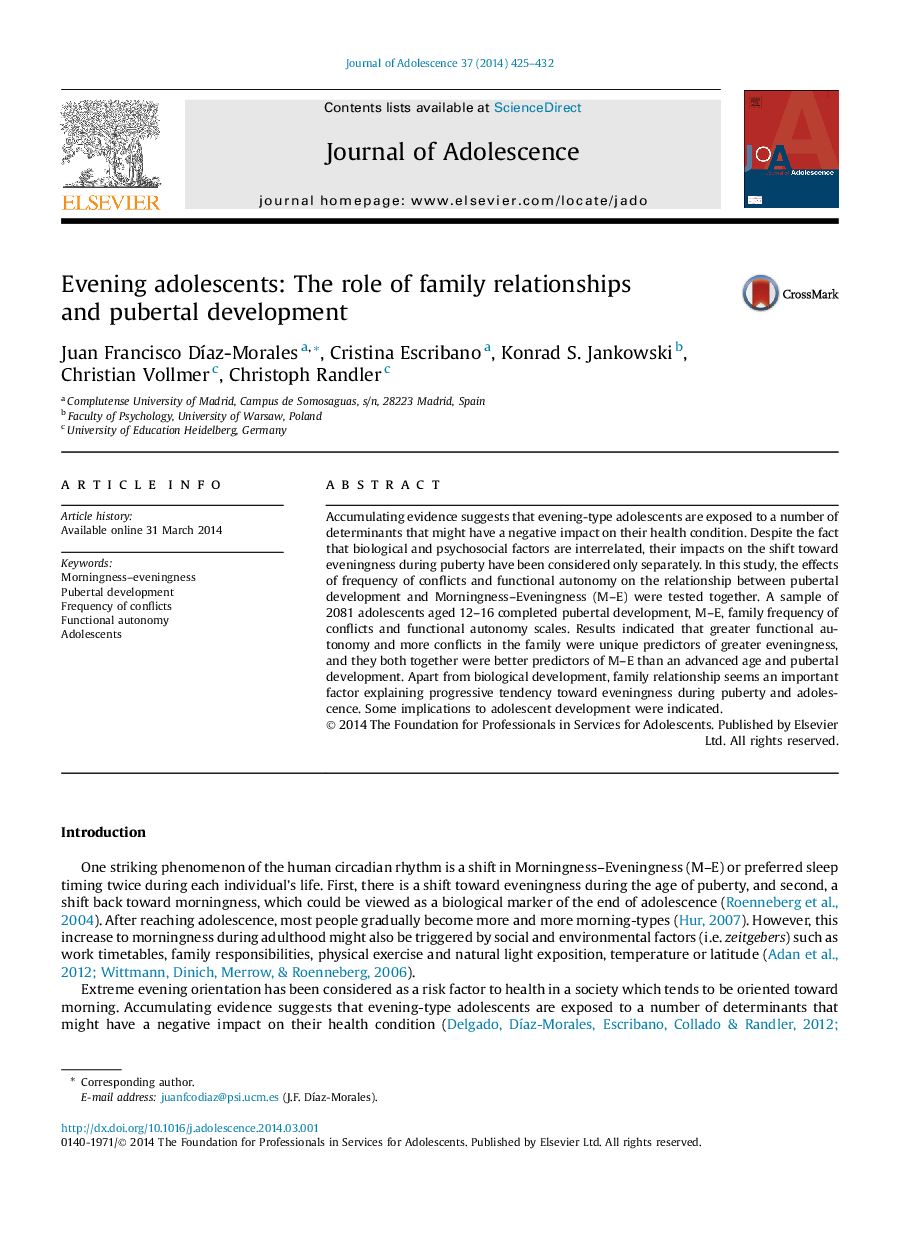| Article ID | Journal | Published Year | Pages | File Type |
|---|---|---|---|---|
| 880793 | Journal of Adolescence | 2014 | 8 Pages |
Accumulating evidence suggests that evening-type adolescents are exposed to a number of determinants that might have a negative impact on their health condition. Despite the fact that biological and psychosocial factors are interrelated, their impacts on the shift toward eveningness during puberty have been considered only separately. In this study, the effects of frequency of conflicts and functional autonomy on the relationship between pubertal development and Morningness–Eveningness (M–E) were tested together. A sample of 2081 adolescents aged 12–16 completed pubertal development, M–E, family frequency of conflicts and functional autonomy scales. Results indicated that greater functional autonomy and more conflicts in the family were unique predictors of greater eveningness, and they both together were better predictors of M–E than an advanced age and pubertal development. Apart from biological development, family relationship seems an important factor explaining progressive tendency toward eveningness during puberty and adolescence. Some implications to adolescent development were indicated.
